Coach Education Resources
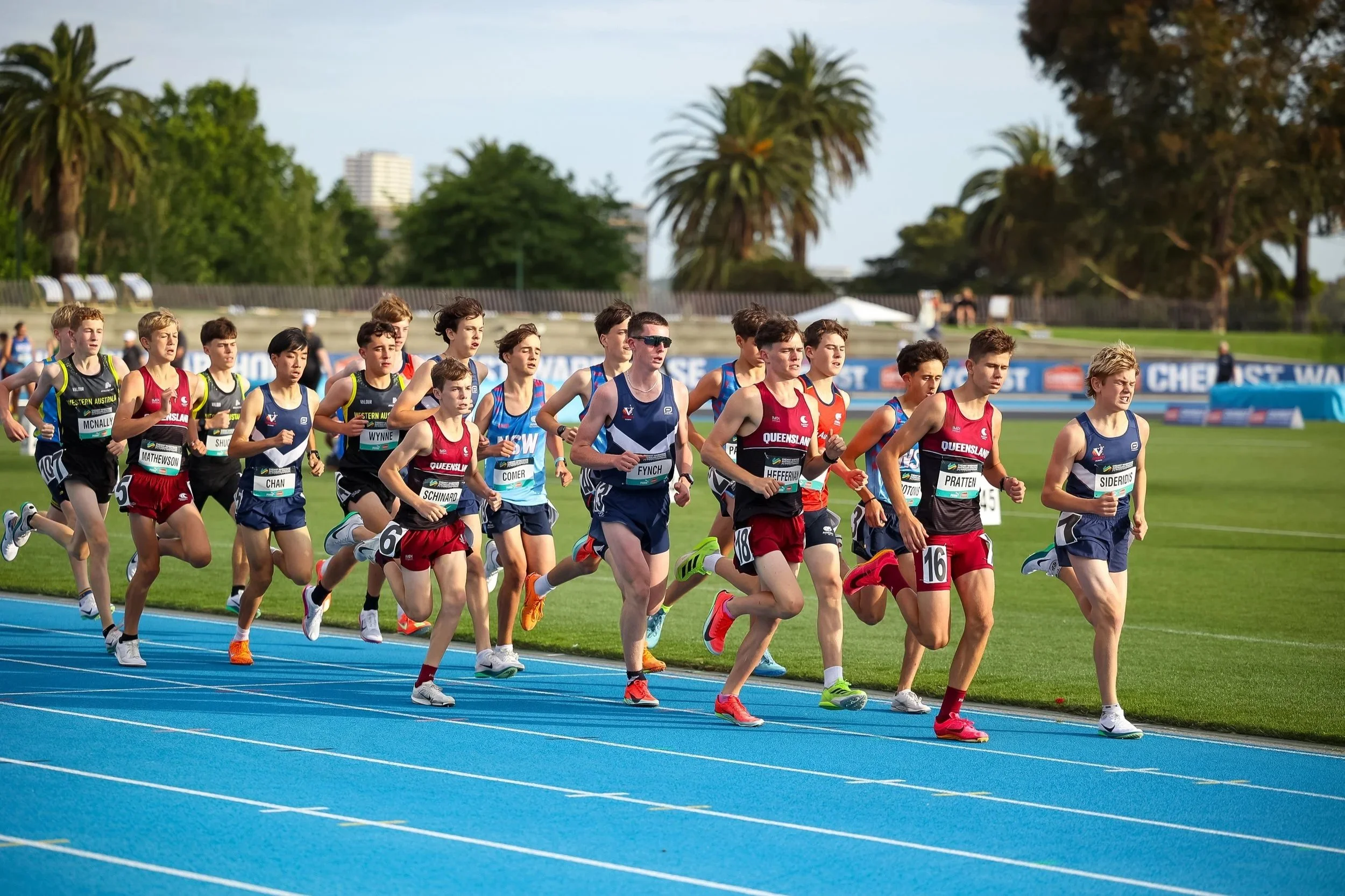
Warm-Up Tool For Athletics
A practical warm up can make or break a sprint session. This resource gives coaches a simple, session ready sprint warm up that moves from general to specific, with clear phases, coaching cues, and time budget options.

Para-Athletics High Performance Overview
Explore our new feature on para athletics and the road to Brisbane 2032, with practical case studies from sprint, throws and wheelchair racing from Para Performance Coaching Manager, Andrew Dawes. Coaches will learn how to apply familiar principles to para athletes, solve performance problems in creative ways, and open new pathways for their squad.
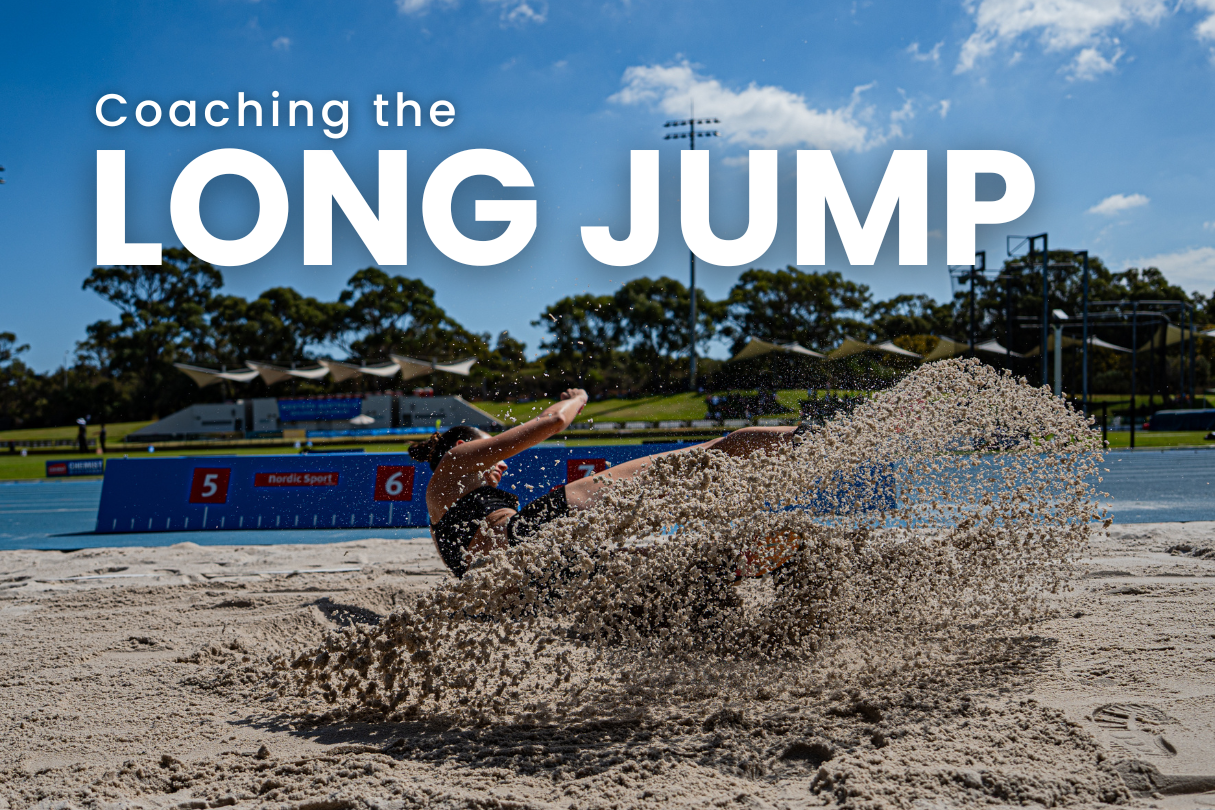
Coaching Long Jump
Rewatch Coach Keith Herston’s presentation on coaching the Long Jump here. This page brings together the key ideas, drills and example training structures from our recent long jump coaching webinar. It is designed as a practical reference so you can quickly revisit the big rocks, choose a few drills that fit your group, and adjust your own plans. Use it alongside your existing coaching, not as the only answer, and keep tailoring the ideas to the needs and level of your athletes.

Energy Availability: Fueling Athletes for Health and Performance
Low energy availability happens when an athlete is not eating enough to support both daily life and training. Relative Energy Deficiency in Sport, often called REDS, is the wider set of health and performance problems that can develop when low energy availability continues over time. Understanding the difference helps coaches spot early signs and support athletes before issues become more serious.

Weight Loss Drugs and Coaching
Weight-loss medications such as Ozempic and Mounjaro are becoming increasingly common among runners, from recreational participants to masters athletes. This article helps coaches understand how these drugs work, their potential impact on training and competition, and what to monitor when supporting athletes who use them.

Coaching Athletes with Autism
This week’s presentation with Aspect Australia challenged coaches to rethink inclusion, moving beyond the idea that athletes must adapt to sport, toward the belief that sport must adapt to the athlete. Presenters unpacked the social model of disability, explored the “Just-Right Zone” of performance regulation, and shared practical strategies such as quiet spaces, sensory-aware coaching, and predictable session structures.

Blood Flow Restriction Training for Athletics
What if your athletes could get the benefits of heavy lifting without the heavy loads? Blood Flow Restriction (BFR) training is fast becoming a smart tool for track and field coaches — from sprinters and throwers chasing power, to distance runners managing fatigue, to injured athletes on the comeback trail.
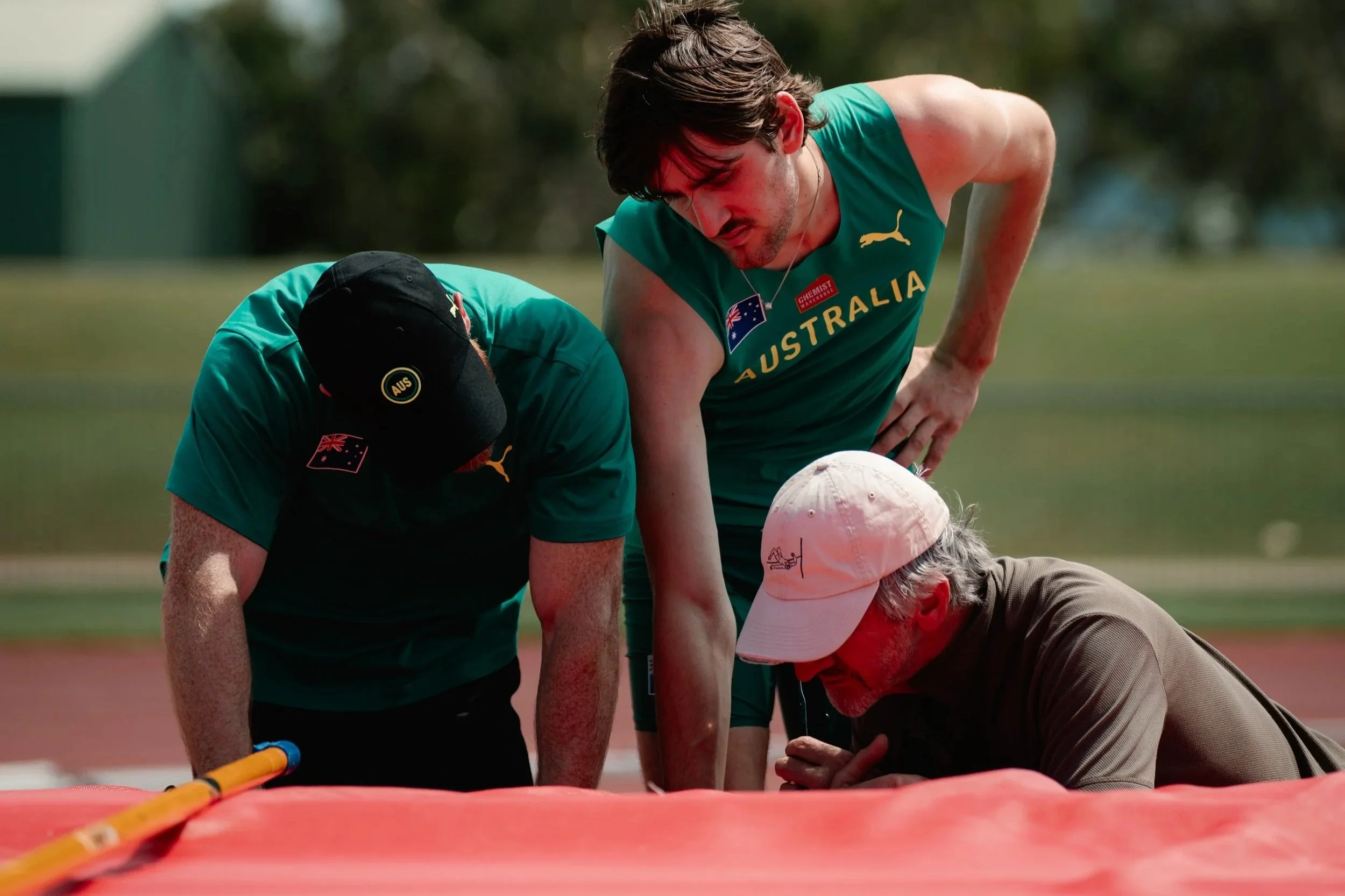
The Coach as Architect and Performer: 12 Behaviours for Success Under Pressure
Cliff Mallett distils a four year AIS study that interviewed 12 elite coaches and eight athletes to reveal what great coaching looks like under pressure. Hear how coaches act as Architects and Sculptors of the training environment and as Performers in competition, with 12 clear behaviours that lift your performance.

Review of Literature: The Use of Weight Training in Long-Term Athlete Development
Weight training is more than just lifting heavy, it plays a vital role in the long-term development of young athletes. This review examined 20 studies published between 2010 and 2023, exploring how structured weight training influences strength, power, performance, and injury prevention in children and adolescents. The evidence is clear: when delivered with proper technique, progressive overload, age-appropriate exercises, and professional supervision, weight training not only builds stronger athletes but also protects them from injury.

Long-Term Development of Sprinters: Part 2
Sprint technique depends not only on correct movement patterns, but also on whether the athlete has the strength and coordination to execute them effectively.
Physical preparation gives athletes the foundation to express speed. It underpins technique, protects against injury, and unlocks sprinting potential. For teenage sprinters, a long-term, well-structured strength and conditioning plan is essential, beginning with general athleticism and becoming more specific as the athlete matures.

Triple Jump Development
Australian Athletics is proud to share the replay of our Development of Triple Jumpers masterclass, held on 13 August 2025 with NCAA coach Keith Herston. This session delivers clear, practical insights for coaches on building long-term pathways for female triple jumpers, with lessons you can apply directly in training.
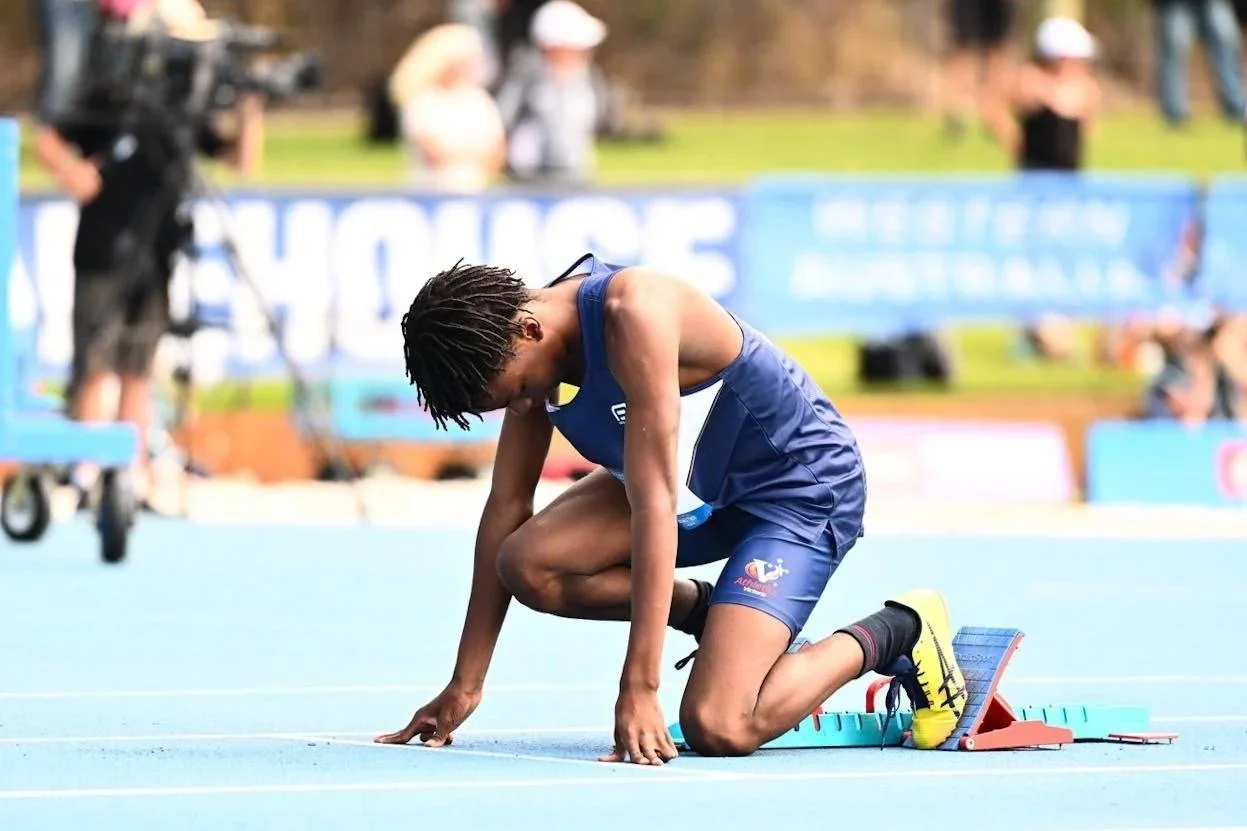
Calculating your Athletes’ Peak Height Velocity
Track athlete growth with confidence. This simple tool helps coaches estimate where an athlete sits in relation to their peak growth period—pre-, circa-, or post–PHV. Use it to guide training focus, manage injury risk, and support performance during key stages of development. No lab testing required.

Coaching Athletes with Intellectual Disability of Autism: What You Need to Know
Catch up on Webinar 2 of the Disabillity Inclusion Education Series. Learn more about Autism Spectrum Disorder and coaching strategies for providing optimal training environments for athletes with the condition.
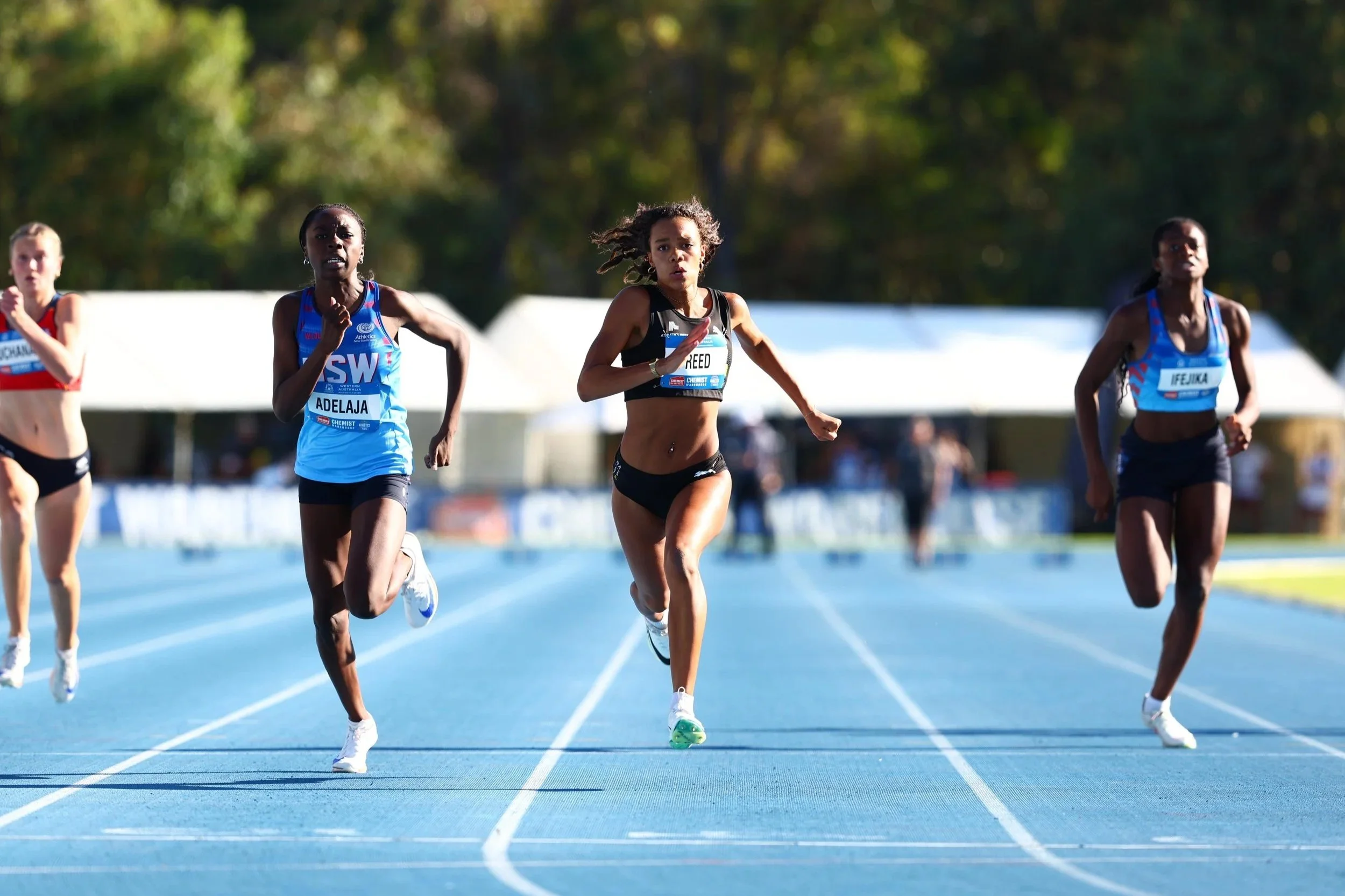
Long-Term Development of Sprinters: Part 1
Developing young sprinters starts with sound technique, but that doesn’t mean over-coaching or chasing a mythical “perfect” model.
This first of 8 installments of our Coaching Development Sprinters series breaks down what matters most at each stage of development, from upright mechanics to acceleration posture, and provides practical cues and exercises.

Glide vs. Rotational Shot Put - Which Technique is Superior?
Which is better for shot put…the glide or the rotation? This deep dive compares the two techniques across athlete types, performance outcomes, biomechanics and coaching priorities. From youth development to elite competition, we explore how physical qualities like strength, coordination and mobility shape the best technical fit.

Inclusive Coaching in Athletics for People with Intellectual Disabilities and/or Autism
If you’re an accredited coach, you already know that great coaching means supporting every athlete to reach their potential. Inclusive coaching is not an optional extra, it’s a core skill of coaches from Level 1 to 4. This webinar brings together practical strategies for working with athletes with intellectual disabilities or autism spectrum disorder (ASD). It draws on the expertise of Special Olympics Australia and lived insights from athlete leaders.

Should You Plan Aerobic Training Before or After Strength Training?
A long-standing gym debate finally gets clarity. New research reveals that lifting weights before cardio significantly boosts fat loss and muscle performance. Whether your goal is body composition, strength, or aerobic capacity, understanding the science behind exercise sequencing can help unlock better results.

Lessons from Grant Ward’s Coaching Journey
Tune in to hear Grant Ward share valuable "lessons learned from a coaching journey" that spans decades and includes guiding athletes like Kylie Wheeler and Kim Mickel to international success. Drawing on his diverse background, Grant emphasises that coaching ultimately "comes down to relationships" founded on trust, confidence, and respect with athletes.
Grant openly discusses learning from significant "stuff ups" or failures, stressing that "if you're not failing, you're not learning either". He advocates for practical wisdom, advising coaches to "Keep it simple, stupid" (KISS) and avoid overcomplicating their methods. Essential elements of his journey include being open-minded , building strong networks, seeking mentors, and being flexible, adaptable, and vulnerable.

How This Coaches Eye Checklist Might Be the Kickstart Your Next Season Needs
Ever feel like you know where your athlete’s at but struggle to put it into words, or turn that instinct into a clear coaching plan? The Coaches Eye Tool is here to help. This simple but powerful observation tool helps track key areas like physical readiness, mindset, effort, and technical consistency all in one place.

What Coaches Can Learn from the World’s Best Distance Runners
What truly separates the best from the rest in distance running? It's not just high mileage or VO₂max—it’s how that training is structured, progressed, and personalised. Drawing from Haugen et al.'s landmark study and the training diaries of world champions, this article breaks down the key principles behind world-class performance: high volumes of low-intensity running, adaptive periodisation, and smart load management.

